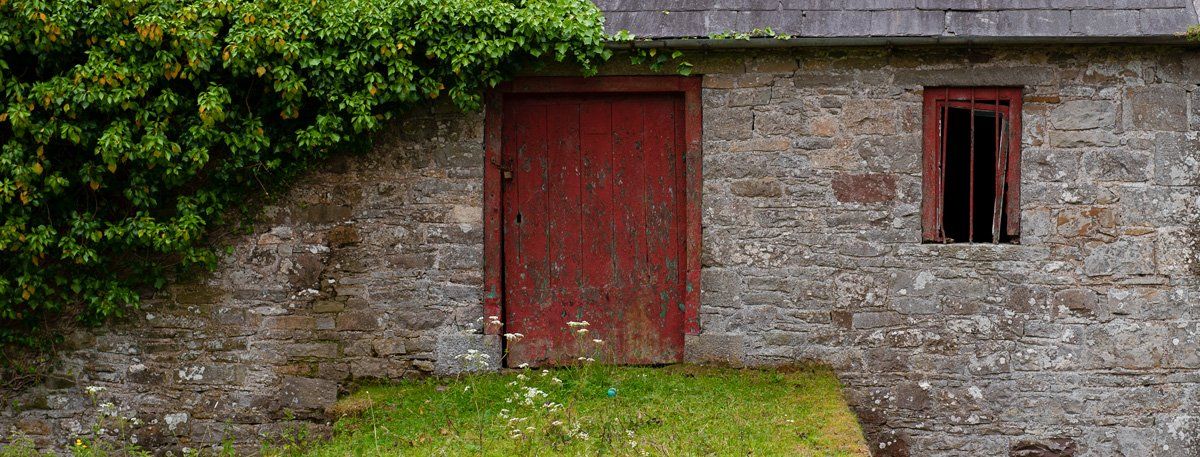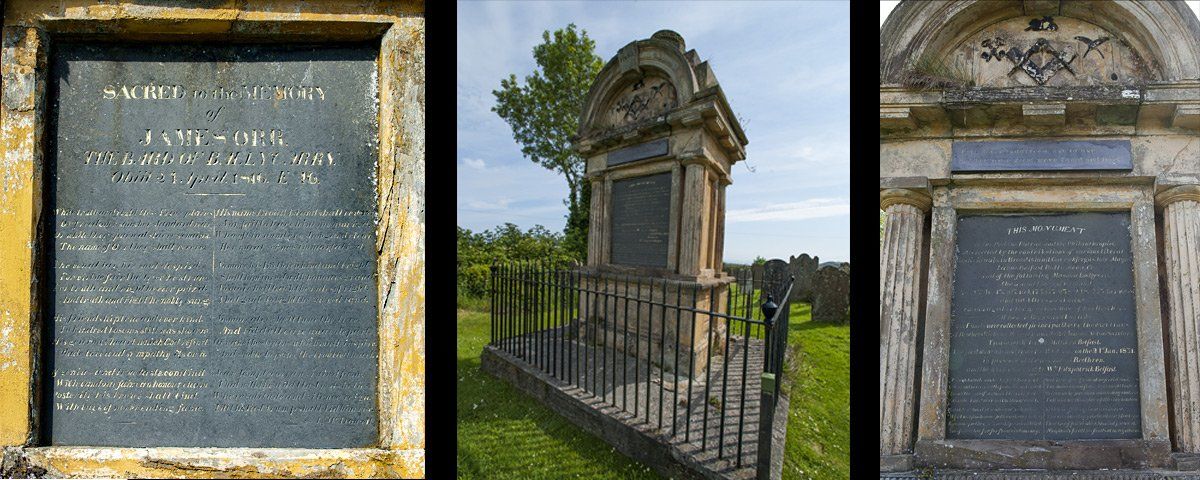James Orr - Poet
The Ulster weaver poet James Orr was born here in 1770 and became known as the Bard of Ballycarry. James was educated entirely by his elderly father and began writing in English and Ulster-Scots from an early age. He was on the same par with Robbie Burns and had a unique gift to write the tongue he spoke. James Hewitt said of him 'he came from that time before the schoolhouse tamed their lively tongue'. His early years followed the weaving trade of his father while he wrote and became well known locally. When the United Irishman paper, the Northern Star was published in Belfast he began contributing his poetry.
In 1791 he joined the society and continued his writings as well as working in the weaving trade. In 1798 he marched with the Army of Ulster and took part in the Battle of Antrim. With the collapse of the rebellion, he went into hiding but eventually gave himself up and was put in jail. With no self-confession and no evidence to prove treason, he was released on condition he transport himself to America, which he did. He stayed there until an amnesty was announced and then returned home to Ballycarry around 1800, where he tried to enlist in the local yeomanry but was rejected when the local landlord remembered him from the uprising.
When his father passed away he took over the tenancy of the cottage and continued as a weaver. His only book was published in 1804 entitled 'Poems on Various Subjects', he did this by a subscription list, where 500 people subscribed to buy the book before it was printed which in itself is evidence of his popularity as a writer. He was foremost a working man and a weaver, penning his work in his spare time. In 1816 he died where he was born, aged 46. A group of friends compiled and published 'The Posthumous Works of James Orr of Ballycarry'. All the proceeds at Orr's request went to relieve poverty in Ballycarry. Today he is remembered by an impressive memorial placed in the church graveyard by the Freemasons.



